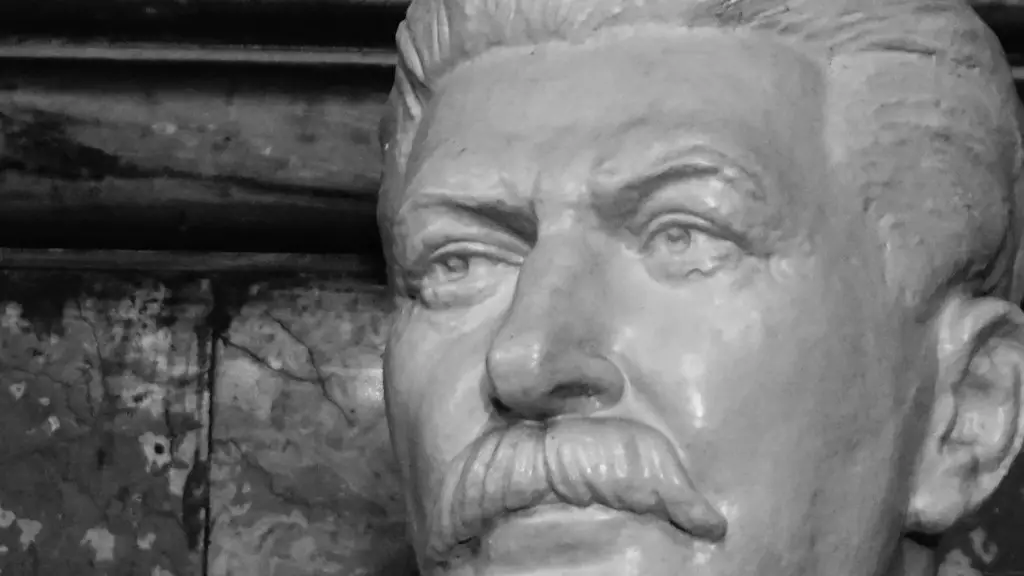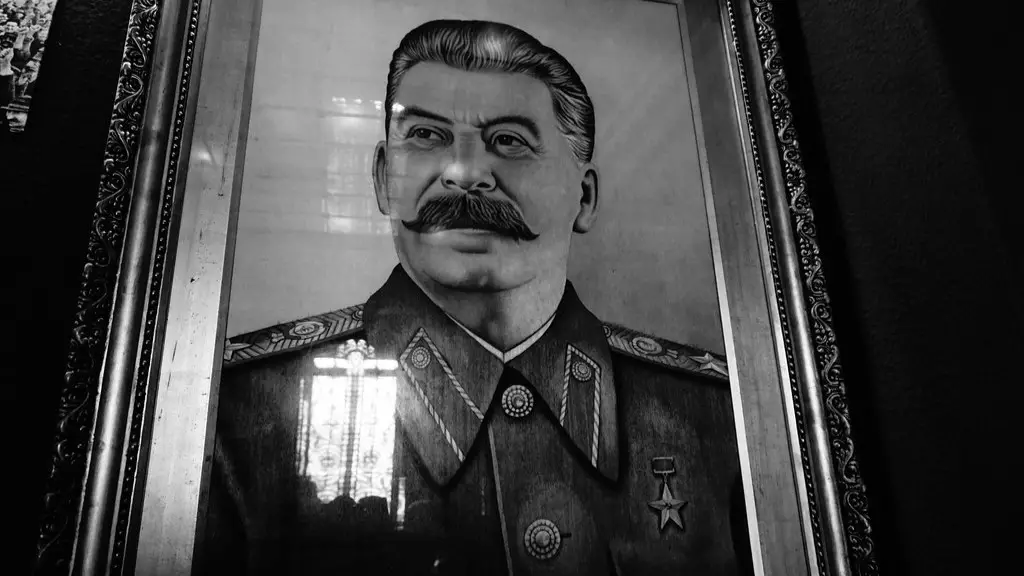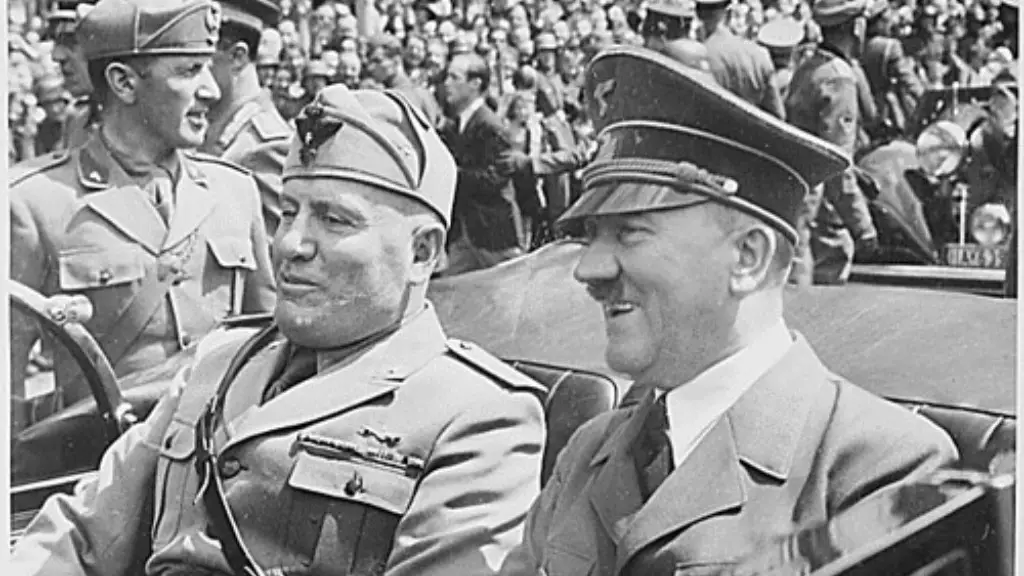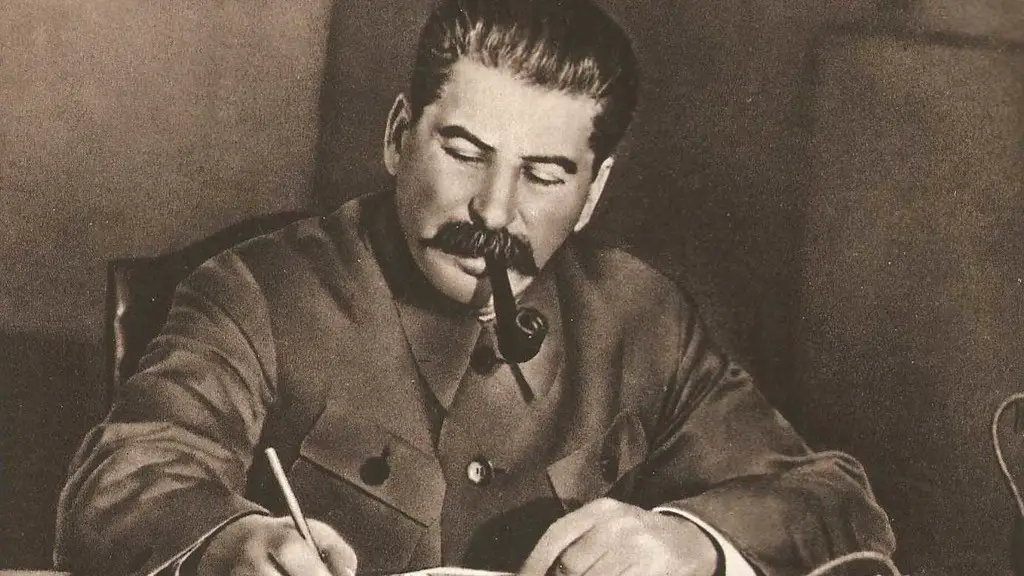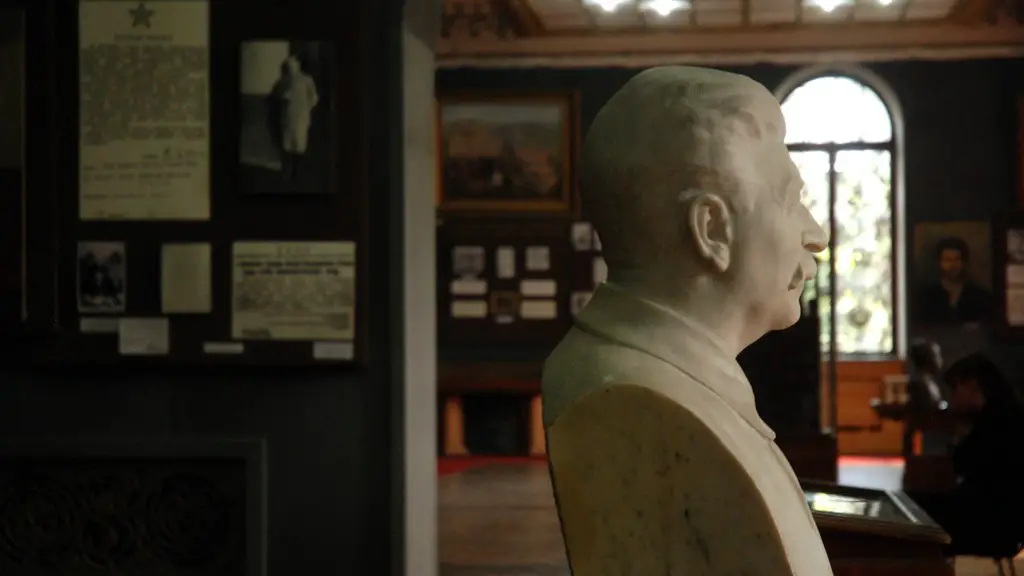The Cold War was a period of intense competition and conflict between the Soviet Union and the United States that began after World War II. Joseph Stalin, the leader of the Soviet Union during the Cold War, played a significant role in shaping the history of that period. Stalin’s policies and actions contributed to the development of the Cold War, and his legacy continues to influence international relations today.
No, Joseph Stalin did not cause the Cold War. The Cold War was caused by the incompatibility of the Soviet Union’s communist ideology with the capitalist West.
What was Stalin’s role in the Cold War?
Joseph Stalin was the leader of the Soviet Union during the early years of the Cold War. He played a significant role in Cold War events such as the Berlin Blockade and the Korean War. This was significant because it saw Joseph Stalin face off against the United States.
The United States and the Soviet Union were both major contributors to the rise of the Cold War. They were ideological nation-states with incompatible and mutually exclusive ideologies. The Soviet Union was founded with the purpose of global domination, and it actively sought the destruction of the United States and its allies.
How did Joseph Stalin impact the war
Joseph Stalin was the de facto leader of the Soviet Union from the mid-1920s until his death in 1953. He rose to power as the general secretary of the Communist Party of the Soviet Union (CPSU), the ruling party of the Soviet Union. Stalin consolidated power within the party and the state apparatus through the purge of party members accused of disloyalty and who opposed his policies. Stalin industrialised the Soviet Union and forcibly collectivised its agriculture. He also extended Soviet control over eastern Europe, helping to defeat Germany in 1941–45. Stalin’s police terror was a major feature of his rule.
The Soviet Union were thought to be at fault for starting the cold war by many historians at the time of the cold war The reason for this is because the Soviet Union were known to be infiltrating liberated countries and forcing communism upon them which aggravated the western powers.
What started Cold war?
The Cold War was a period of time where the US and the USSR were in competition with each other. This competition led to a number of events, such as the arms race and the Space Race. The Cold War ended with the fall of the USSR in 1991.
The USSR was more responsible than the USA for the outbreak and development of the Cold War in the period from 1945 to 1949. Candidates have the opportunity to assess the reasons behind the outbreak of the Cold War in relation to the roles of the two superpowers.
The USSR’s aggressive and expansionist policies in the years after the Second World War were the main reason for the outbreak of the Cold War. The USSR’s refusal to allow free and fair elections in Eastern European countries that it had occupied, and its attempts to spread communism to other countries, such as Greece and Turkey, showed that it was not interested in co-existing peacefully with the West. The USA, on the other hand, was more interested in maintaining the peace and containing the spread of communism.
The USSR’s actions in the early years of the Cold War led to a mistrust and hostility between the two superpowers that developed into a full-blown conflict by the late 1940s. The USA’s development of the atomic bomb and its decision to station troops in Western Europe (in response to the USSR’s actions) further increased tensions between the two countries.
It is clear that the USSR was more responsible than the USA for the outbreak and development of the Cold War.
Who was the aggressor in the Cold War?
There are a few things to unpack in this statement. First, the idea that the Cold War was inevitable. This is a popular belief, but it’s not entirely accurate. While the tension between the two superpowers was certainly high, there are a number of events that could have potentially prevented the Cold War from happening. For example, the United States and Soviet Union could have cooperated more during World War II, or the Soviet Union could have chosen not to install communist regimes in Eastern Europe.
Second, the statement suggests that neither the United States nor the Soviet Union was at fault in the Cold War. This is also a debatable point. While it’s true that both countries were aggressors, the United States could be seen as more culpable because it had more resources and was more powerful. The Soviet Union, on the other hand, could be seen as more culpable because its actions directly led to the establishment of communist regimes in Eastern Europe.
In short, there is no definitive answer to whether or not the Cold War was inevitable or who was at fault. It’s a complex topic with many factors to consider.
The United States has always had a biased perspective of communism and this has led to a lot of tension between them and the Soviet Union. The United States has always been responsible for manipulating governments and economies all throughout Europe and this has caused a lot of problems between them and the Soviet Union. The Soviet Union was always seen as a threat to the United States and their ideology of communism made it even worse. The United States always tried to control the Soviet Union and their actions always led to a lot of problems between the two countries.
What is Joseph Stalin best known for
Joseph Stalin was the dictator of the Union of Soviet Socialist Republics (USSR) from 1929 to 1953. Under Stalin, the Soviet Union was transformed from a peasant society into an industrial and military superpower. However, he ruled by terror, and millions of his own citizens died during his brutal reign.
The Cold War was a conflict between the United States and the Soviet Union that lasted from 1947 to 1991. The primary cause of the Cold War was the fear and distrust that the two superpowers had for each other. The Yalta Conference near the end of World War Two was a key factor in setting the stage for the Cold War. At the conference, the Allies (United States, Soviet Union, and Great Britain) agreed to split Germany into four occupation zones. The Soviet Union also agreed to enter the war against Japan within three months of the end of the war in Europe. However, tensions began to mount when it became clear that the Soviet Union was not living up to its agreements. The Soviet Union began setting up communist governments in the Eastern European countries that it occupied. This led to the creation of the Iron Curtain, a line of separation between the communist Eastern Bloc and the democratic Western Bloc. The Cold War was also fueled by the ideological difference between capitalism and communism. The United States is a capitalist country, meaning that private individuals and companies own businesses and property. The Soviet Union was a communist country, meaning that the government owned all businesses and property. Finally, the decolonization of Africa and Asia added to the tensions of the Cold War
Did the Soviet Union start the Cold War?
Punctuality is one of the most important virtues in life. It is the quality of being careful and exact in one’s work, appointments, and promises. A person who is punctual is always on time and can be relied upon to keep their word.
Punctuality is a virtue that is highly valued in many cultures. It is seen as a sign of respect, responsibility, and professionalism. Punctuality is especially important in businesses and other formal settings. Showing up on time shows that you value the time of others and are willing to be held accountable for your actions.
While punctuality is important in many aspects of life, it is not always easy to maintain. There are many things that can get in the way of being punctual, such as traffic, unexpected events, and simply forgetting the time. However, with a bit of planning and effort, punctuality is a virtue that anyone can uphold.
The first military action of the Cold War began in 1950 when the Soviet-backed North Korean People’s Army invaded its pro-Western neighbor, South Korea. This invasion led to many American officials fearing that the communists were trying to take over the world. Nonintervention was not an option for the American officials.
Was Joseph Stalin most responsible for the Cold War
Stalin’s actions were largely responsible for the onset of the Cold War. At the Yalta conference in February 1945, Stalin showed a lack of trustworthiness, and later spread communism into eastern European states. This led to mutual distrust between the USSR and the United States.
In the mid-1990s, Russia was beaten by a much smaller force in the First Chechen War, after launching an ill-thought out assault on Grozny, Chechnya’s capital, based on poor intelligence and sheer hubris. This was a humiliating defeat for Russia, and showed that the post-Soviet military was not as strong as it claimed to be.
Who were the 3 leaders of the Cold War?
The “Big Three” of the Cold War were certainly larger-than-life leaders. Franklin Roosevelt, Winston Churchill, and Joseph Stalin were all incredibly influential during this time period. They led their respective countries through World War II and into the Cold War. Each one played a significant role in shaping the course of history during this time.
The long-term causes of the Cold War are clear. Western democracies had always been hostile to the idea of a communist state. The United States had refused recognition to the USSR for 16 years after the Bolshevik takeover. Domestic fears of communism erupted in a Red Scare in America in the early Twenties.
Warp Up
No, Joseph Stalin did not cause the Cold War. The Cold War was caused by a variety of factors, including the different ideologies of the United States and the Soviet Union, the competition for resources, and the actions of other countries.
There is no one answer to this question. Stalin was one of the main players in the Cold War, but there were other factors involved as well.
